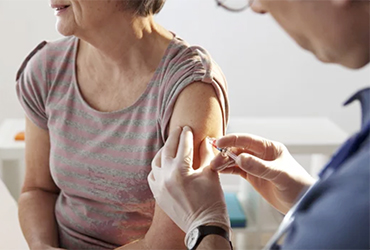By IDSE News Staff
After the FDA announced its new amendments to the emergency use authorizations for the Pfizer-BioNTech and Moderna COVID-19 bivalent mRNA vaccines, the CDC took steps to simplify its COVID-19 vaccine recommendations, including advising older and immunocompromised adults to receive a second dose of the updated bivalent vaccine.
Although there was no vote, the CDC’s Advisory Committee on Immunization Practices met on April 19 and discussed changes to the agency’s COVID-19 vaccine recommendations, as well as the associated implications and implementation. The committee members expressed their support for the new changes to the recommendations.
The changes include allowing adults who are 65 years of age and older to receive an additional bivalent vaccine dose as well as additional doses for people who are immunocompromised. This will give healthcare providers more flexibility to administer additional doses to immunocompromised patients as needed, according to the CDC.
In addition, the CDC now recommends individuals who are 6 years of age and older receive a bivalent mRNA COVID-19 vaccine, regardless of whether they completed the monovalent primary series. Multiple doses continue to be recommended for young children by the CDC, but will vary by age, vaccine and which vaccines they previously received.
The CDC no longer recommends the use of the original monovalent COVID-19 mRNA vaccines in the United States.

The agency said it will continue to monitor COVID-19 disease levels and vaccine effectiveness in the coming months and discuss potential updates this fall.
The Infectious Diseases Society of America welcomed the new, streamlined COVID-19 vaccination schedule. Getting vaccinated and boosted remains the best way to protect oneself against serious illness, hospitalization and death, Carlos del Rio, MD, FIDSA, the president of the Infectious Diseases Society of America, in Atlanta, said in a statement. Vaccination also helps protect young children and those who are immunocompromised against COVID-19.
“The Centers for Disease Control and Prevention took an important step today to clarify when and how often individuals should receive a booster shot of the COVID-19 vaccine. The new, streamlined vaccination schedule provides clear, actionable guidance that the public along with their health care professionals can use to make decisions about vaccination for themselves and their loved ones, including children, older adults and people who are immunocompromised,” Dr. del Rio said.
“To date, fewer than one in five people in the United States have received an updated booster vaccination for COVID-19. It is likely that some people have put off getting boosted because they did not know when they should get an additional dose or if they were eligible. Today’s announcement is intended to eliminate any confusion over frequency and eligibility and help bridge the gap to more people getting boosted against COVID-19.”
—From agency and society materials.




